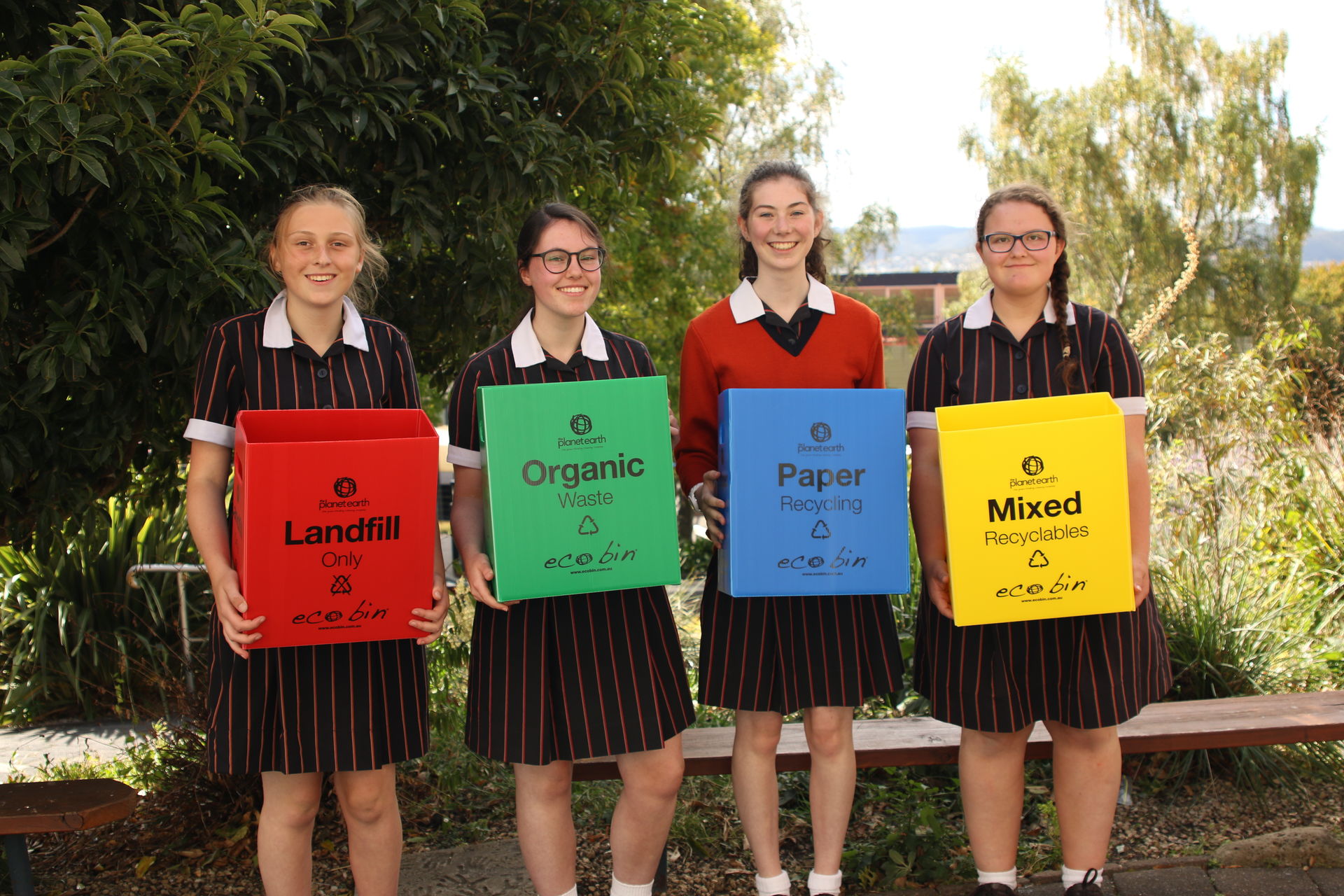11 December 2018
Fahan School has begun to implement a sustainability initiative that is currently being rolled out across the School. The Fahan School Management team and Board offer strong leadership and effective management in the area of environmental sustainability. Strategies to develop an environmentally sustainable learning environment include exploring options for effective water and power resource management, leadership in the areas of conservation and sustainability, and creating a unique integration of the physical assets and environment of the School to enhance sustainability in relation to food, gardens, power, water and waste.
To begin the plan, Fahan has implemented a four-bin system consisting of bins for recycling, organic compost, paper and landfill in their classrooms to educate and encourage the girls to manage their daily waste and become global thinkers. With the support of the City of Hobart Waste Reduction Grant, the bins were successfully introduced at the beginning of Term Three. “I think it is important to take responsibility for the waste we produce. Sustainability means looking after our planet so that future generations can have access to the same resources we have now,” said Year 10 student, Hannah Finkelde.
“Previously at Fahan, we have had only two types of bins, one for paper recycling while everything else went into landfill. The new Eco bins mean that as a School we will contribute less waste to landfill and more into recycling and compost bins,” explained Year 10 student, Anabelle Skeggs. “As we work towards being a zero-waste school the students have been asked to come up with ideas to help. These have included having a Bathtub Worm Farm, building a tool shed made from recycled bottles, as well as moving towards minimal packaging at the canteen and in lunchboxes,” said Year 10 student, Kathryn Sypkes. “By placing the bins around the School we hope to raise awareness and encourage people to be more sustainable,” said Year 10 student, Eliza Baddiley.
The initiative is further enhanced by the opening of the Food and Digital Technology Hub. This new building has been designed to house specialty lessons in Digital Technologies and Food Technologies. The commercial kitchen hosts an array of classes including: cooking classes, Mini Courses, Science lessons, language classes, barista classes and food preparation for School fundraising activities and events. The vision for the Hub is for it to complete the circle of sustainability across the School. Students will have their own Kitchen Gardens to grow produce in conjunction with their composting and recycling programs. They will then be able to sell the produce they grow or cook it to raise money to fund the planting of new seeds. In time, the vegetable gardens will be nourished using the compost produced as a by-product. “Teaching young people about sustainability has never been more important.
It develops the knowledge, values and world views required to make certain that there’s enough for everyone. There is great merit in the goal of protecting natural environments and creating an ecologically balanced system through informed practical action,” said Principal, Mr Tony Freeman. The skills, values and knowledge Fahan students gain from participating in sustainability experiences will hopefully equip students with the ability to address the ongoing detrimental human impact on Earth and make positive contributions to its future.
The aim is for sustainability to become a link across all areas of learning, building on the innate interest the girls have in thinking critically, debating vigorously and acting creatively to discover better ways of using resources.









